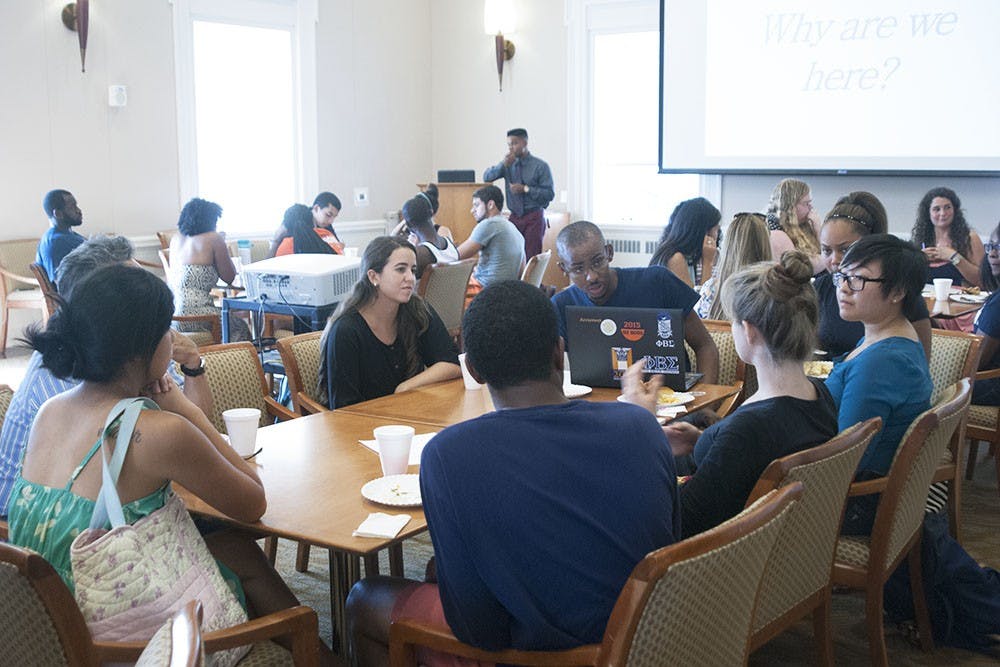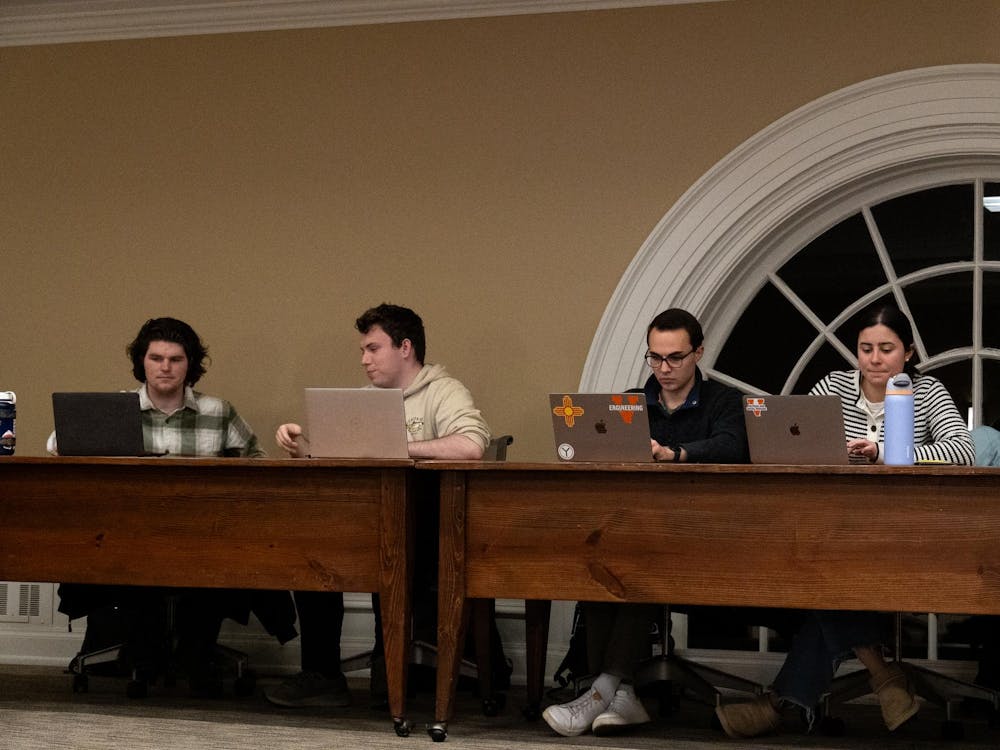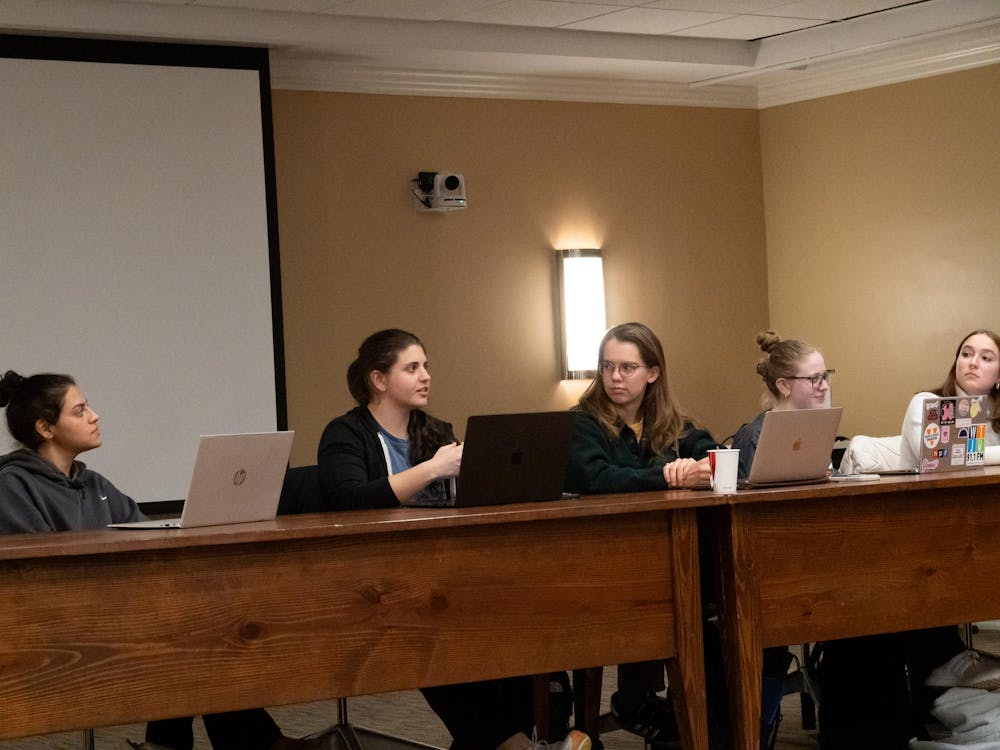The Honor Committee and Minority Rights Coalition held a forum Thursday on issues affecting minority student populations at the University. Martese Johnson, third-year College student and Honor Committee vice-chair for community relations, led the event.
“Today, we intend to highlight the issues in honor in relation to minority students in the University, whether that is black students, international students, etc.,” Johnson said.
“I joined honor because I hated it,” Johnson said. “I hated it because it was always a negative thing with the black community. … A lot of the times it means disproportionate coverage, spotlighting in classrooms and lack of representation.”
Johnson said the event was particularly crucial because it fell in the middle of the Honor Committee’s recruitment process.
“My goal is for them to be angry,” Johnson said. “I want to challenge every minority student in the room to take it upon themselves to understand the issues and disparities in relation to their communities and change them. I want to motivate them to take it into their own hands to change things rather than shy away from being involved at the University.”
Students from several of the organizations under the MRC umbrella came to the event to join in the discussion.
“I didn’t actually feel as though I was a minority until I came to University, being an international student and coming straight from Costa Rica,” said second-year College student Maripaz Casas, a Latino Student Alliance member. “It’s different here. There are so few international students and, being in the LSA, you see the struggle we have to go through as minorities [and] how difficult it is to get our voice out.”
Casas said the president of LSA had talked to members about how the Honor Committee is trying to reach out to minorities and learn how they can better do so.
“This is good, so there is more communication between us and Honor,” she said.
Johnson organized small round-table discussions before opening up the discussion for all in attendance. Many students discussed the role of the Honor Committee in regards to minority representation, acceptance and trust.
“I don’t think we can get to that place of building more trust unless whatever communities that have been discriminated against by the Honor Committee take a part of it and bring a change from the inside as well as from the outside,” first-year College student Tyler Ambrose said. “It takes people getting involved in Honor.”
Others questioned the willingness of minority groups to join the Committee to begin with.
“What is making you want to be a part of that system?” fourth-year College student Augustina Mensa-Kwao asked. “How do we make Honor more approachable?”
Johnson and most students in attendance agreed it is both the responsibility of the Honor Committee to reach out to historically underrepresented groups and the responsibility of minority groups to reach out to the Committee. Minority students must to be educated and participate in order to make changes.
“We have to take it from dissatisfaction to participation,” third-year College student Rachel Murphy said.
Second-year College student Catalina Pinto said the Committee should focus on multiculturalism rather than diversity.
“[The Committee should be] seeking different perspectives and experiences rather than seeking out students just based on race or being a minority,” she said.
Amelia Garcia, also a second-year College student, said the Committee needs passionate students willing to push through and stand up for underrepresented minorities.
“Honor and integrity, … these characteristics don’t have a race or a color, so in terms of problems with recruitment, I thought, what is the issue?” she said.
Overall, students in attendance agreed the Committee has to make active changes to better represent the actual population of the University.
“The honor system is us,” Johnson said. “We see it as a punitive system, viewing it as the students above us on their pedestals, but it is our system.”
He said one thing the Committee is trying to change is its outreach during the year and making sure the conversation remains consistent between the Committee and other organizations.
“We have to inspire ourselves, because nobody else is going to do it,” Johnson said. “We need to motivate ourselves to change these organizations, not only for ourselves, but for the people coming behind us. There are always going to be Black, Asian and Hispanic students at this University.”





